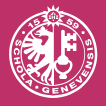Detailed introduction of Zurich University of Applied Sciences:
Introduction and Overview
Zurich University of Applied Sciences is one of the largest universities of applied sciences in Switzerland, and plays an important role in the field of applied science education in Switzerland and even in Europe. The school offers a wide range of undergraduate and master's degree programs covering multiple disciplines, and is committed to cultivating professionals with practical ability and innovative spirit to meet the diverse needs of society and industry.
History and Establishment Time
The school was formed in 2007 by the merger of Zurich University of Applied Sciences Winterthur, Waddenswil University of Applied Sciences, Zurich School of Social Work and Zurich School of Applied Psychology in the canton of Zurich. Among them, one of the predecessors of Winterthur Campus, Teknikum Winterthur College, was founded in 1874 and is the largest engineering school in Switzerland; another predecessor, the Higher School of Economics and Management, was founded in 1968 and is one of the earliest higher education institutions in Switzerland to teach business and industrial administration.
School Strength
Teaching Staff: It has a team of highly qualified and experienced teachers who not only have profound attainments in the academic field, but also have rich industry practical experience, and can provide students with teaching guidance combining theory and practice.
Student size: There are currently about 10,660 students.
Research achievements: The school's research focuses on key social challenges, especially in energy and social integration. With its expertise in sustainable development and digital transformation, it actively participates in shaping digital and ecological transformation and has made important contributions to social and economic development.
Institutional nature
Public university.
Educational philosophy
Emphasis on the close integration of theory and practice, focusing on cultivating students' ability to solve practical problems, enabling students to quickly adapt to the needs of the workplace and society after graduation, and laying a solid foundation for their careers.
Key laboratories and disciplines
Key laboratories: The school has a number of key laboratories in different disciplines, such as energy research laboratories, biological science laboratories, materials science laboratories, etc., which provide advanced experimental equipment and research platforms for scientific research and teaching, and promote cutting-edge research and technological innovation in disciplines.
Key disciplines:
Engineering disciplines: including mechanical engineering, electrical engineering, computer science, aeronautics and other majors, cultivate students' design, development and innovation capabilities in the field of engineering technology to meet the needs of modern industrial and technological development.
Economic management disciplines: such as business management, international management, banking and finance, etc., focus on cultivating students' business insight, management skills and economic analysis capabilities, and provide professional talents for enterprises and financial institutions.
Health science disciplines: covering nursing, sports rehabilitation, midwifery and other majors, committed to cultivating professionals in the medical and health field and improving the health level of the public.
Applied language disciplines: with journalism, communication, multilingual translation and other majors, cultivate students' ability in language application and cross-cultural communication to adapt to the language service needs in the context of globalization.
Life science disciplines: including biology, chemistry, food science and other majors, focus on basic research and application development in the field of life sciences, and cultivate professional talents for industries such as biotechnology and food industry.
Department settings
The school has the following 8 departments :
Department of Architecture, Design and Civil Engineering: Provides degree courses in architecture and civil engineering and other related majors, and cultivates students' professional capabilities in architectural design, structural engineering, construction management, etc.
Department of Health: Covers majors such as nursing, sports rehabilitation, and midwifery, focusing on cultivating students' practical skills and professional qualities in the field of medical and health care.
Department of Applied Linguistics: Includes majors such as journalism, communication, and multilingual translation, and is committed to improving students' language application ability and cross-cultural communication skills.
Department of Life Sciences and Facility Management: Has majors such as biology, chemistry, facility management, and food science, and cultivates students' comprehensive capabilities in life science research and facility management.
Department of Applied Psychology: Provides degree courses in applied psychology, and cultivates students' professional knowledge and skills in psychological counseling, organizational psychology, and psychotherapy.
Department of Social Work: Focuses on cultivating students' professional capabilities in social welfare, social policy, community development, etc., and provides professional talents for the social service field.
Department of Engineering: Covers majors such as aeronautics, electromechanics, mechanics, and materials programming, and cultivates students' innovation and practical abilities in the field of engineering technology.
Faculty of Economics, Management and Law: including majors such as business management, international management, and economic law, to cultivate students' comprehensive literacy and professional ability in the fields of economics, management and law.
Ranking
The Master of International Business of the Faculty of Economics, Management and Law ranks 64th in the 2020 Financial Times ranking.
Expenses
Tuition fees: Tuition fees per semester are about 730 Swiss francs, about 5,000 yuan, but may vary for different majors.
Living expenses: In the Zurich area, monthly living expenses are about 1,500-2,000 Swiss francs, including accommodation, food, transportation and other expenses, about 10,000-14,000 yuan.
Scholarships: The school provides a variety of scholarships and grants for outstanding students, such as excellence scholarships, scientific research scholarships, etc., to encourage students to achieve excellent results in academic and scientific research.
Campus
Campus distribution: The school's administrative center is located in Winterthur, Zurich, and there are also campuses in Zurich and Wadenswil.
Campus facilities: The campus is equipped with modern teaching facilities and complete living facilities, such as libraries, laboratories, computer centers, student dormitories, restaurants, sports facilities, etc., providing students with a good learning and living environment.
-

University of Applied Sciences and Arts of Western Switzerland
-

University of Basel
-

Swiss Federal Institute of Technology Zurich
-

University of Geneva
-

University of Bern
-

Università della Svizzera Italiana
-

University of Lausanne
-

Franklin University Switzerland, FUS
-

Bern University of Applied Sciences
-

University of St. Gallen
-

Mesoamerican University
-

Istmo University
-

Mariano Galvez University of Guatemala
-

Regional University of Guatemala
-

Galileo University
-

Francisco Marroquín University
-

Rafael Landívar University
-

University of the Valley of Guatemala
-

University of San Carlos of Guatemala
-

Technological Institute of Tlaxcala Plateau
-

Golfo University
-

Technological University of South Sonora
-

Technological University of Huejotzingo
-

Tizimín Institute of Technology
-

Chilpancingo Institute of Technology

